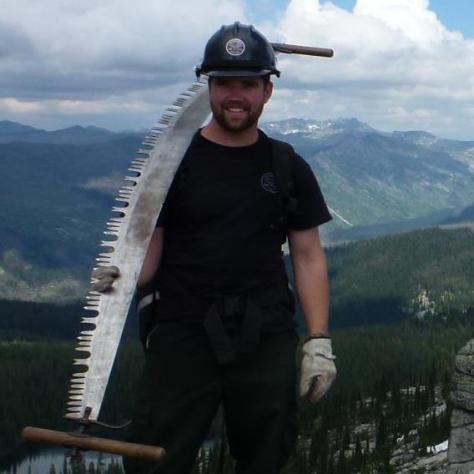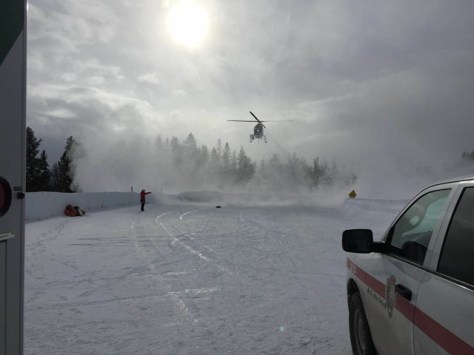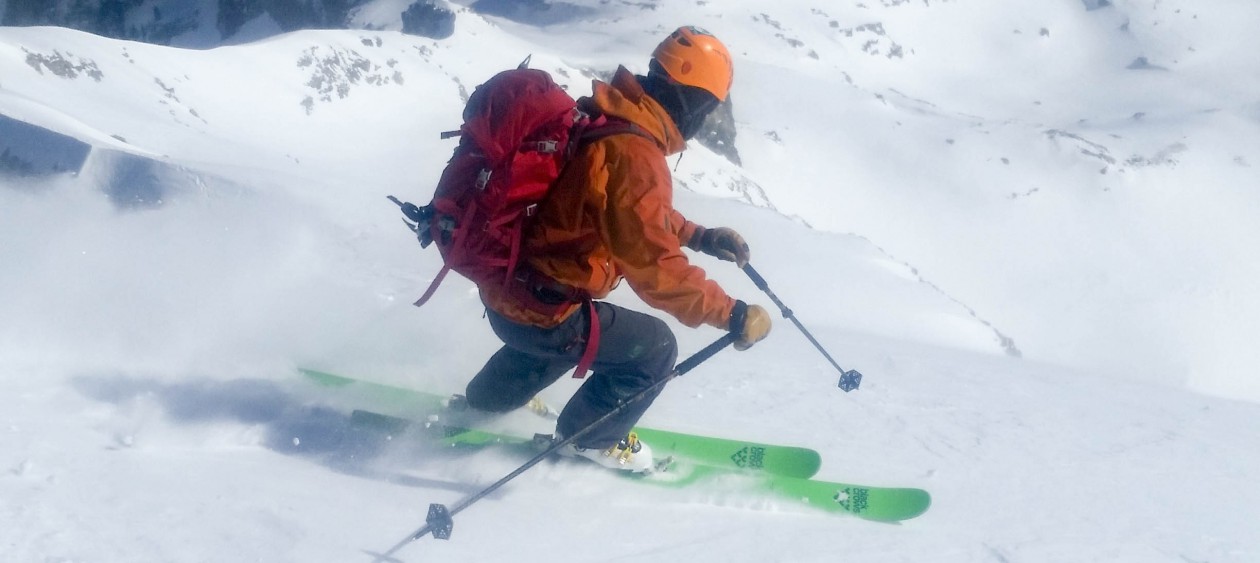The hard lessons of surviving an avalanche in the Tetons
The sky was dark and the air crisp on the morning of February 4 as we skinned toward the Spoon Couloir in Grand Teton National Park. Moving along in meditative unison, my mind began to wander to the events of the past two weeks. A lifelong friend, Darren Johnson, had died in an avalanche while patrolling at the Yellowstone Club on January 19th. This massive loss had ripped a hole in my soul and I was heading into the mountains to repair the damage. I could have never imagined that later in the day I would nearly suffer the same fate as my dear friend……
Click here for the amazing story posted on Powder.com!


Be safe out there and as always, Keep on Adventuring!


Thanks for sharing Rene.
LikeLike
Thanks Kyle! Anything I can do to educate and help others learn from this experience, I feel obliged to do.
LikeLike
What an amazing story and so well written!
LikeLike
Thanks Anika. Glad I’m here to share it.
LikeLike
Thanks for sharing!
LikeLike
Anything to help inform the ski community.
LikeLike
Wonderfully written, especially the part about time slowing down and divine intervention removing your pole strap. Darren was with you ensuring your survival. My love to you and your family and I hope you are healing from your physical injuries and taking time to heal from the emotional ones.
LikeLike
Thanks Kristen! Hard story to tell, but glad to share it. Hope you are well.
LikeLike
Such a great read and informative tool for all of us that spend our time in the mountains. Brought back memories of my friend Benny Brackett who died in an avalanche in Tahoe a few years back. Thank you for writing this Rene, brought me to tears thinking of friends lost. so glad that you’re alive and well.
LikeLike
Thanks for sharing that Rodney. Everyone who travels in the mountains runs that risk, but you never imagine it will happen to someone you know, or yourself. Stay safe out there and keep having fun!
LikeLike
Great story Rene! So glad it had a happy ending – stay safe and have fun.
LikeLiked by 1 person
glad you came out reasonably ok. just a comment on ski poles and straps: in ’81 or ’82, i was completely buried in a soft snow slough at grand targhee, with my hands in pole straps, locked under my butt. it took a bit of time to wriggle my hands out, and once i did it was not overly hard to uncover myself, though it felt like forever (i was alone). but i have never skied backcountry with my hands in straps since, for the chance of being buried, not to mention getting a pole stuck and wrenching my shoulder. is there some reason you do? i also don’t have my bindings on very tight, but i’m not an extreme skier, and i guess you need to if you ski harder stuff.
LikeLike
Before this, I liked the stability of the straps on the climb and the security of them on the down. I’d take them off when going through trees (to protect my shoulders), but it wasn’t something I considered in regards to what would happen if I were caught in a slide. I guess that’s why I wanted to share this story, to try and share my lessons in hopes it can help out someone in the future.
Speaking on locking out the bindings, it’s all situational for me, but if I’m skiing something I’d consider a “no fall zone”, then normally I’ll lock them out….but once again, didn’t consider the possibility of what would happen if I got caught in a slide.
Thanks for the comment.
LikeLike
Thanks for posting and glad you survived. I was mostly buried in an avalanche last season heli skiing in AK. Only my left hand and the top of my head were above the snow. I was not injured, but if I had been, the heli was in range of our radios and only seconds away for a quick rescue. What would have happened if the heli could not have rescued you? Would you plan differently in the future knowing that a heli rescue may be impossible?
LikeLike
We were very fortunate to get rescued; it is by no means a guarantee here in the Tetons and should be looked at as a remote possibility. If the helicopter didn’t get up there, we would have worked our way down to the base of Disappointment Peak and met up with some rescuers at some point. A few things I was disappointed not to have in my kit was paracord (for making a litter) and an emergency bivy. I have the emergency blanket, but it would have been nice to have something more substantial for warmth. (possibly even a 40-degree bag)
LikeLike
Thanks for the great read and glad you made out ok. Hope the ankle is healing well! Question: did you have an air bag backpack? Would it have helped you stay above the snow?
LikeLike
Hey Ali,
I did not have an Airbag, but in this instance it would have helped and wish I had one. With the long runout and lack of terrain trap, this would have been the ideal couloir for one in GTNP. Ankle is slowly healing, thanks for asking!
LikeLike
Hey Rene,
Thanks for sharing your story. It’s really beneficial to hear from people who have survived an avalanche. There are a lot of different possible experiences and one story isn’t enough to learn from, so I appreciate each one. If everyone could read 10 detailed stories of avalanche burials and what went wrong, they’d be 1,000 times more experienced in the backcountry without having to learn the hard way. I would be curious to hear more about what you learned about the pre-avalanche, in hindsight and how, or if, you could have avoided the avalanche all together.
It was interesting to hear about the play by play as you came down and tried to cover your mouth or felt your poles slide off and relate it to my own experience 3 years ago when I was buried. It’s not an experience you can share with many people. I had my gopro on for it, if you’re interested, google “nemesis mountain avalanche.”
I’m glad you’re mostly alright and hope your ankle is healing fully and quickly! I’m still dealing with a shoulder injury from my experience, but should be back to normal soon. Well written article, I appreciate the lesson highlights, and I teared up by the last line. I’m not a writer, but you’ve inspired me and I think maybe I will try to write about my experience for others to learn from as well.
Cheers,
Jeremy
LikeLike
Hey Jeremy,
Thanks for sharing your story with OutdoorBeta! I agree that it would be nice to read about as many avalanche stories as possible. I have always found them very insightful and helpful, but know that they are very difficult to share for many reasons (emotional, negative exposure, etc). In regards to hindsight, I do wish I was not on that slope, because it slide and has caused a huge hurdle in my life. I do not know if I would have been able to do anything different besides not go up there that day-which I still feel I would do based on all the information at hand. I responded to a few people on powder, but wrote a long one to “Dreamer Boy” under the comments section of the article that details our decision-making process that day and think it clearly spells out our actions. It is at Powder-Surviving the Spoon under comments if you want to take a look. I’ll have a look at your incident on youtube when I feel I can handle that sort of thing and do encourage you to write about it. While difficult, it has been cathartic and helpful in the healing process. I wish you all the best with your shoulder and glad you wrote in.
Rene
LikeLike